
This is an article from the Safe Pregnancy in Epilepsy patient guide.
In some people, Epilepsy may be hereditary. But even if you have epilepsy, the chance that your child will have epilepsy is 5% or lower.
Epilepsy is inherited through abnormal epilepsy genes. These epilepsy genes may be dominant or recessive (explained below). So transmission of epilepsy can be dominant or recessive.
Genetic testing for epilepsy before pregnancy may be useful in the future. At present, genetic testing for epilepsy is rarely useful.
Hello! I am Dr Siddharth Kharkar, a Neurologist in Thane, India and a Neurologist in Mumbai, India. I provide Parkinson’s treatment in India and am an Epilepsy specialist in India. I provide Epilepsy surgery in India at Mumbai & Parkinson’s surgery in India.
Come, let’s learn together about this important topic.
Table Of Contents
- Is Epilepsy a hereditary disease?
- How commonly is Epilepsy inherited?
- How is Epilepsy inherited?
- What are “Recessive” genes?
- What are “Dominant” genes?
- If I have a Dominant epilepsy gene, will my child have Epilepsy?
- Is Epilepsy more likely to be transmitted if the Parents are related?
- Is Genetic Testing for epilepsy before pregnancy useful?
- Summary:
- Dr. Siddharth Kharkar
- NeuroPlus Epilepsy & Parkinson’s Clinic – Dr. Kharkar
Is Epilepsy a hereditary disease?
The word hereditary means passed on from Parents to Children.
People with Epilepsy can have abnormal genes. If you have epilepsy, some of your genes may be abnormal. These genes may be passed on to your children.
So, Epilepsy can be an inherited disease.
Parents pass on their DNA to their children.

How commonly is Epilepsy inherited?
Most children of patients with Epilepsy do not develop Epilepsy. It is unlikely that your child will have Epilepsy, even if you have Epilepsy.
Overall about 1% of babies are born with epilepsy.
If you have epilepsy, the chance increases but only slightly. About 5% of babies born to a parent with epilepsy will have epilepsy.
Overall, the chance that you will transmit epilepsy to your child is small.
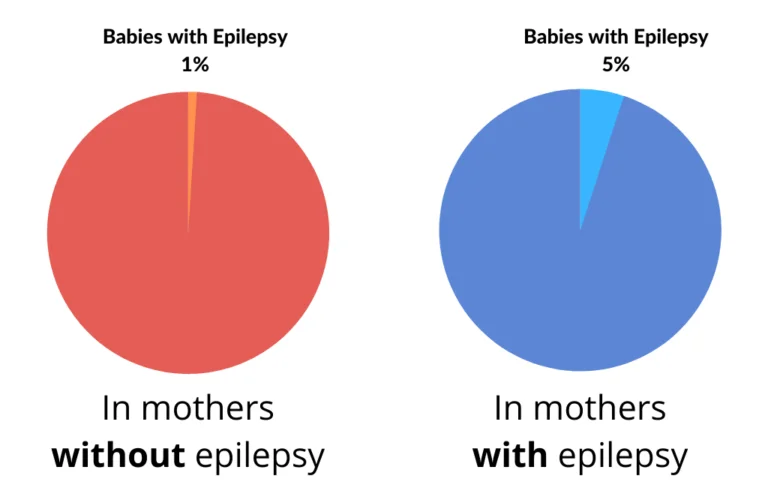
For example:
One Italian study looked at more than 10,000 people with Epilepsy. Only 2.5% of close relatives (parents, siblings, children) of these patients had epilepsy.
Therefore, in most cases the answer to the question “Is epilepsy a hereditary disease” is NO, epilepsy is not a hereditary disease.
The risk of your children getting Epilepsy is higher if:
- You have one of the “Dominant” genes mentioned below.
- You have an Epilepsy syndrome with only generalized seizures, e.g. JME.
Let us know more how epilepsy is inherited.
How is Epilepsy inherited?
Epilepsy is inherited through abnormal genes. Epilepsy genes are present in some people with epilepsy.
Many people with epilepsy do not have abnormal epilepsy genes. Many people have epilepsy due to causes such as old strokes or head trauma. These people cannot pass on epilepsy to their children. In these cases, it is incorrect to say that epilepsy is hereditary.
A stroke is caused by a blood clot in the brain. It can cause seizures. This form of epilepsy is not hereditary.
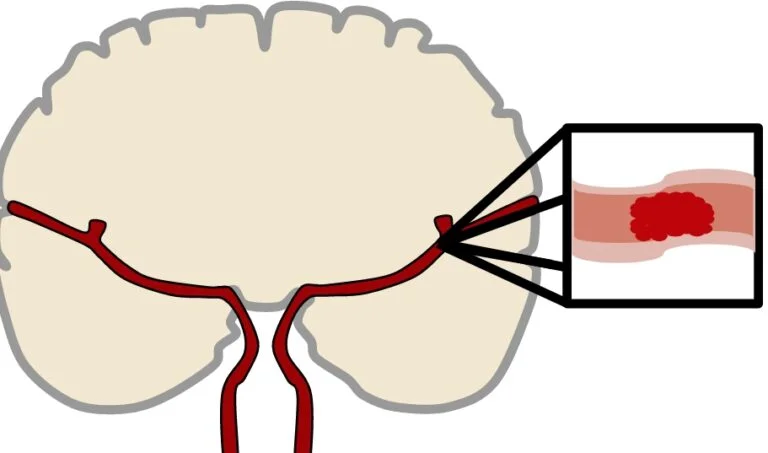
Even if you have an abnormal epilepsy gene, it is very unlikely that your children will have epilepsy.
Epilepsy genes can be Recessive or dominant. They can have incomplete penetrance. So, even if you have an abnormal epilepsy gene, it may be incorrect to say that epilepsy is hereditary.
Let us know more about the terms recessive genes, dominant genes and incomplete penetrace.
What are “Recessive” genes?
Let us assume that you have some abnormal genes. Still, it is unlikely that your child will have epilepsy.
Why is it so? It is because your child will receive two sets of genes. One set from you and another from your partner.
The egg has 23 chromosomes. The sperm has 23. They combine, and the baby gets 46 chromosomes!
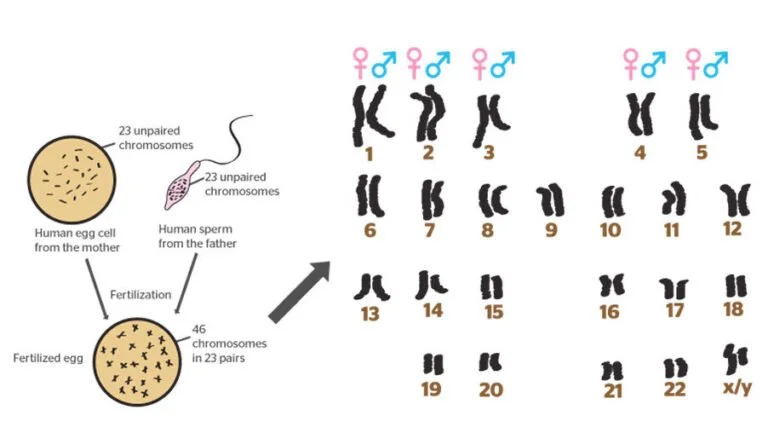
Even if one of these sets is normal, the child will not have Epilepsy. The normal genes prevent the harmful effect of abnormal genes.
These abnormal genes are called “Recessive”. Luckily, many of the genes causing Epilepsy are Recessive.
So, even though epilepsy is a hereditary disease if you have recessive genes – very few members of the family actually develop epilepsy.
What are “Dominant” genes?
Some genes are “Dominant” in nature. This means that even if only one set of genes is faulty, the child can develop Epilepsy.
If you want, you can click on the plus sign below. You will see the known Dominant genes causing Epilepsy.
This table seems large! But very few people have these genes. Most people have “recessive” epilepsy genes.
Dominant Epilepsy genes
| Abnormal Gene | Mechanism: Which channel is affected | Epilepsy Syndrome that it produces |
| KCNQ2, 3 | Abnormal Potassium channels on cells | Benign Familial Neonatal Convulsions |
| SCN2A | Abnormal Sodium channels | Benign Familial Neonatal-Infantile Seizures |
| SCN1A, 2A, 2B, GABRG2 | Same as above | Generalized Epilepsy with Febrile Seizures Plus (GEFS+) |
| SCN1A | Same as above | Dravet Syndrome |
| GABRA1, EFHC1, CACNB3, CLCN2 & others | Abnormal Chloride/Calcium channels | Juvenile Myoclonic Epilepsy (JME) |
| TSC – 1&2 | Unknown | Tuberous Sclerosis |
| CHRNA – 2,4, B2, KCNT1 | Acetylcholine receptors / Potassium channels | Autosomal Dominant Nocturnal Frontal Lobe Epilepsy (ADNFLE) |
| LG11 | Abnormal Potassium Channels | Autosomal Dominant Epilepsy with Auditory features (ADEAF) |
| Unknown (?GABRG2) | Unknown | Familial Mesial Temporal Lobe Epilepsy (FMTLE) |
| DEPDC5 | Abnormal signalling pathways inside cells | Familial Focal Epilepsy with Variable Foci (FEVF) |
*Non-italic = These genes may produce both focal or primary generalized epilepsy. Italic = produce only focal epilepsy.
So, epilepsy is more likely to affect your family members (including children) if you have a dominant epilepsy gene. But even that is not a 100% certainty.
If I have a Dominant epilepsy gene, will my child have Epilepsy?
Even if you have a “Dominant” epilepsy gene, your child may not have Epilepsy.
Sometimes abnormal genes do not cause an abnormal effect, even if they are dominant. “Incomplete penetrance” is the medical term for this phenomenon.
The reasons for “Incomplete penetrance” are difficult to explain. You can read more by clicking here.
Even if many children have a dominant epilepsy gene, only a few develop epilepsy. This is called “incomplete penetrance”.
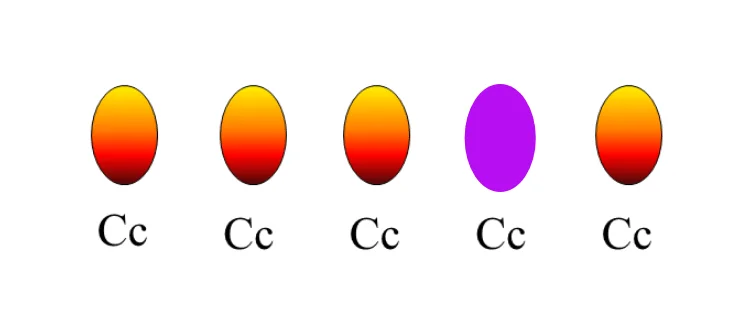
But who’s arguing with nature! Incomplete penetrance is very beneficial.
For example:
Only 6.6% of children of Parents with JME develop JME. (read more by clicking here)
Let us look at the other genes described above. Notice that it is difficult to calculate the exact chance of transmission. If you’re intersted, here is a research paper discussing this problem.
Penetrance of Dominant Epilepsy genes
| Abnormal Gene | Epilepsy Syndrome that it produces | Chances that your Child will have Epilepsy |
| KCNQ2, 3 | Benign Familial Neonatal Convulsions | 80% |
| SCN2A | Benign Familial Neonatal-Infantile Seizures | Variable |
| SCN1A, 2A, 2B, GABRG2 | Generalized Epilepsy with Febrile Seizures Plus (GEFS+) | 80% |
| SCN1A | Dravet Syndrome | Unknown |
| GABRA1, EFHC1, CACNB3, CLCN2, | Juvenile Myoclonic Epilepsy (JME) | Variable as little as 6% in some studies. |
| TSC – 1&2 | Tuberous Sclerosis | 100% |
| CHRNA – 2,4, B2, KCNT1 | Autosomal Dominant Nocturnal Frontal Lobe Epilepsy (ADNFLE) | Variable 60 – 80% |
| LG11 | Autosomal Dominant Epilepsy with Auditory features (ADEAF) | Variable 60 – 80% |
| Unknown (?GABRG2) | Familial Mesial Temporal Lobe Epilepsy (FMTLE) | 60% |
| DEPDC5 | Familial Focal Epilepsy with Variable Foci (FEVF) | 60% |
So even if you have a dominant epilepsy gene, Epilepsy may still not be a hereditary disease!
Is Epilepsy more likely to be transmitted if the Parents are related?
Usually, parents have very different genes from one another. The child does get two sets of genes, one from each Parent. Even if one is an abnormal epilepsy gene, the other is frequently normal.
So Epilepsy transmission to the child is not common.
Marriages between close relatives (e.g. cousins) are called “consanguineous Marriages”.
Weddings between cousins are common in some cultures.

If the two parents are related to each other (e.g. are Cousins), then they are genetically similar. They have similar genes.
Both may have the same abnormal epilepsy gene. Their child may get two sets of abnormal epilepsy genes. A child with two sets of abnormal epilepsy genes can develop epilepsy.
So, Epilepsy is more likely to be a hereditary disease if the parents are closely related.
Is Genetic Testing for epilepsy before pregnancy useful?
Doctors don’t agree about genetic testing for Epilepsy before pregnancy. Usually, genetic testing for epilepsy before pregnancy is not helpful.
Genetic testing checks whether you have an abnormal epilepsy gene. If you have an epilepsy gene, perhaps your doctor can estimate the chance that your child will have epilepsy.
But genetic testing is frequently useless.
Here is why:
- We don’t know all the genes that cause Epilepsy. So a negative result means nothing.
- Let’s say we do find an abnormal gene. Still, the chance of the child getting epilepsy is variable. (see “incompelte penetrance” & table above).
Testing for epilepsy genes before pregnancy is reasonable only in special cases.
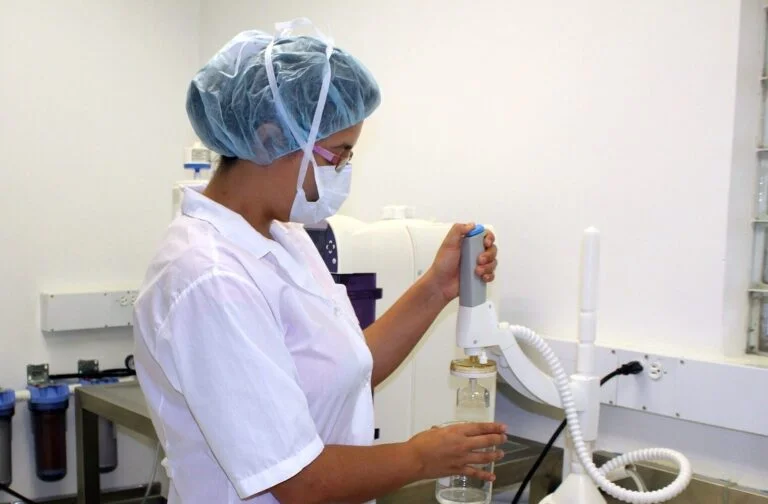
I don’t enthusiastically advise genetic testing before pregnancy. I discuss it in 3 scenarios:
- If your spouse is related (e.g. cousins).
- There is a strong history of epilepsy in your family.
- You have a epilepsy syndrome that is well-known to have a high chance of transmission.
There are other scenarios in which genetic testing may be useful:
- It may identify your Epilepsy Syndrome.
- It may disclose why your epilepsy is difficult to control.
- It may help in selecting the right medications.
- It may help in predicting the outcome of Epilepsy Surgery.
You can read more about genetic testing for Epilepsy by clicking here. [Can Epilepsy be genetic]?
Summary:
- Epilepsy can be transmitted to children. But the chance is very low (5% or less).
- This is because each child gets 2 sets of genes. 1 set from each parent. Usually, even if one set is normal the child does not develop Epilepsy (Recessive gene).
- It is impossible to identify all genes causing epilepsy. It is impossible to calculate the exact risk of transmission.
- I usually don’t recommend testing for epilepsy genes before pregnancy. There are 3 exceptions to this rule (see above).
- Be sure to read the “Safe Pregnancy in Epilepsy Checklist”.
Caution: This information is not a substitute for professional care. Do not change your medications/treatment without your doctor’s permission.
